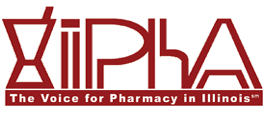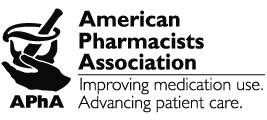Can Allegations of Insurance Fraud Lead to Medical License Discipline?
 Insurance fraud is a serious issue in the healthcare industry, and allegations of fraudulent activity can have significant consequences for medical professionals. In addition to facing legal penalties, physicians who are found guilty of insurance fraud may face disciplinary action from the Illinois Medical Board. They could also lose their provider status with Medicare/Medicaid, limiting their ability to provide services to certain patients, and multiple other aspects of their practice could be affected. By understanding the forms of insurance fraud that could lead to medical license discipline, a doctor and other medical providers can respond to allegations that they have committed fraud and determine how to avoid the loss of their license.
Insurance fraud is a serious issue in the healthcare industry, and allegations of fraudulent activity can have significant consequences for medical professionals. In addition to facing legal penalties, physicians who are found guilty of insurance fraud may face disciplinary action from the Illinois Medical Board. They could also lose their provider status with Medicare/Medicaid, limiting their ability to provide services to certain patients, and multiple other aspects of their practice could be affected. By understanding the forms of insurance fraud that could lead to medical license discipline, a doctor and other medical providers can respond to allegations that they have committed fraud and determine how to avoid the loss of their license.
Common Forms of Insurance Fraud
Some physicians or other medical providers may be investigated for healthcare fraud by agencies such as the Department of Health and Human Services (HHS) or the state or federal Office of the Inspector General. An investigation by these agencies or other officials can have multiple types of consequences, and in addition to issues that may affect their license and their career, a person could potentially face criminal charges for fraud at the state or federal level.
Some common types of activities that could lead to charges of insurance fraud include:
-
Billing for services not provided - A provider may be accused of submitting claims for payment to insurance companies without actually performing the treatments listed.
-
Upcoding - Doctors may bill insurance providers for more expensive procedures than what they actually provided to patients. In some cases, multiple services may be "bundled" together in order to charge for additional services along with the treatments that were provided to patients.
-
Unbundling - While related medical services will often be grouped together, providers may separate multiple services into separate items and charge higher fees for each individual form of treatment.
-
Performing unnecessary tests or treatments - Doctors may be accused of encouraging patients to undergo certain treatments that would not actually benefit their health, or they may order tests that are not necessary. This may be done to allow them to bill insurance companies for these services and receive additional payments.
-
Falsifying records - Providers may submit false records or other inaccurate information in order to increase the amount of reimbursement they receive from insurers.
-
Double-billing insurance companies - Patients may be eligible for coverage from private insurance companies and Medicare or Medicaid, and a provider may be charged with insurance fraud if they bill multiple entities for the same services.
Physicians who are accused of insurance fraud may face investigations from the Illinois Medical Board or other organizations. These investigations may scrutinize their conduct, including any improper billing practices or deviations from accepted healthcare standards. If the Board determines that a person committed insurance fraud or engaged in other prohibited behavior, it may take disciplinary action, which may include the suspension or revocation of their medical license, fines, remedial action, or official reprimands.
Contact Our Illinois Medical License Defense Lawyer for Insurance Fraud Claims
Allegations of insurance fraud can be very serious, and they can have far-reaching consequences for people in the medical profession. Doctors and other medical providers who are facing these types of accusations will need to determine how they can respond. With the help of an Illinois medical license discipline attorney, medical professionals can take steps to mitigate the impact of these accusations on their professional reputation, their medical practice, and their overall livelihood. Contact The Law Offices of Joseph J. Bogdan, Inc. to set up a free consultation and learn how we can assist with these issues.
Sources:
https://www.ilga.gov/legislation/ilcs/documents/072000050K17-10.5.htm
https://www.ilga.gov/legislation/ilcs/documents/022500600K22.htm














